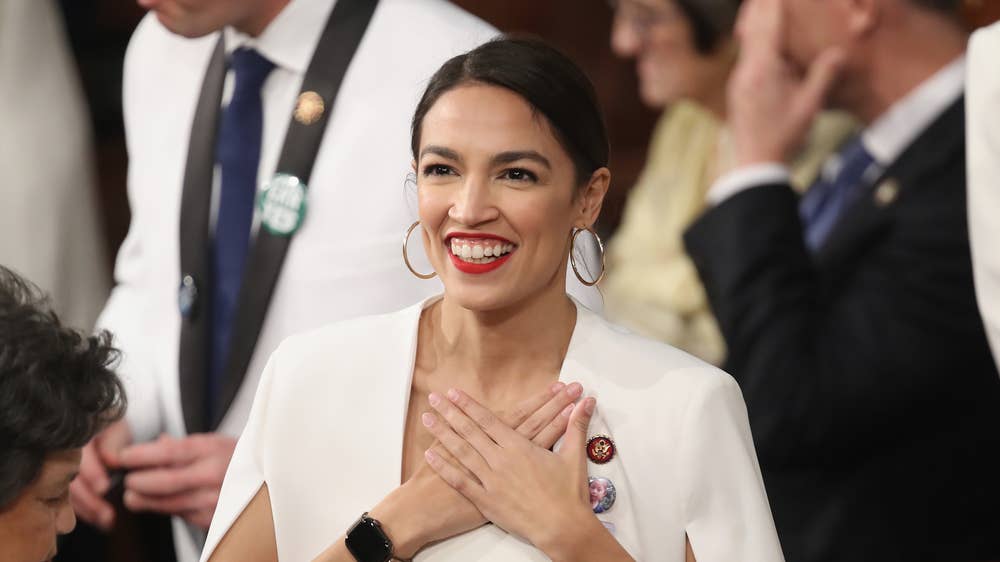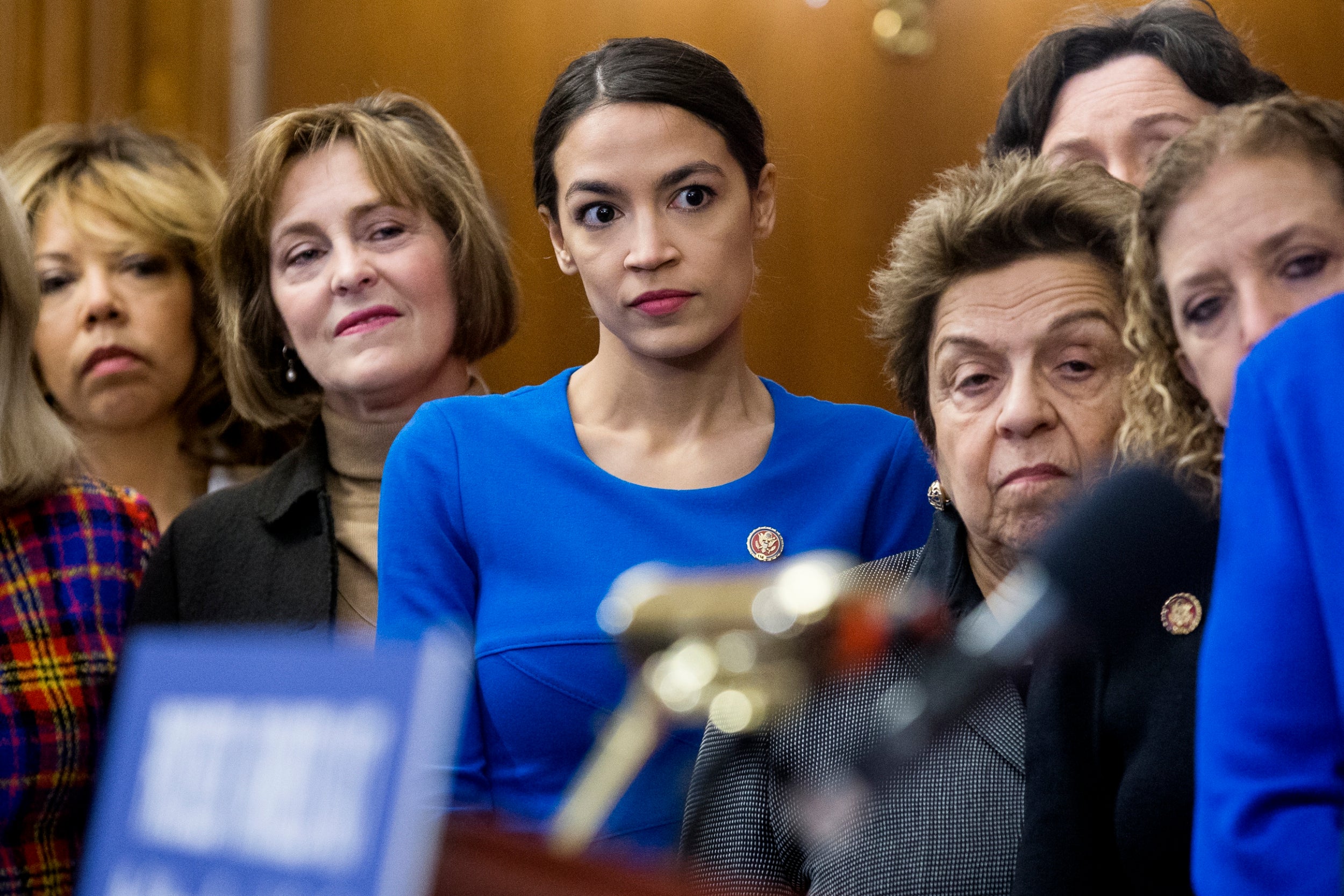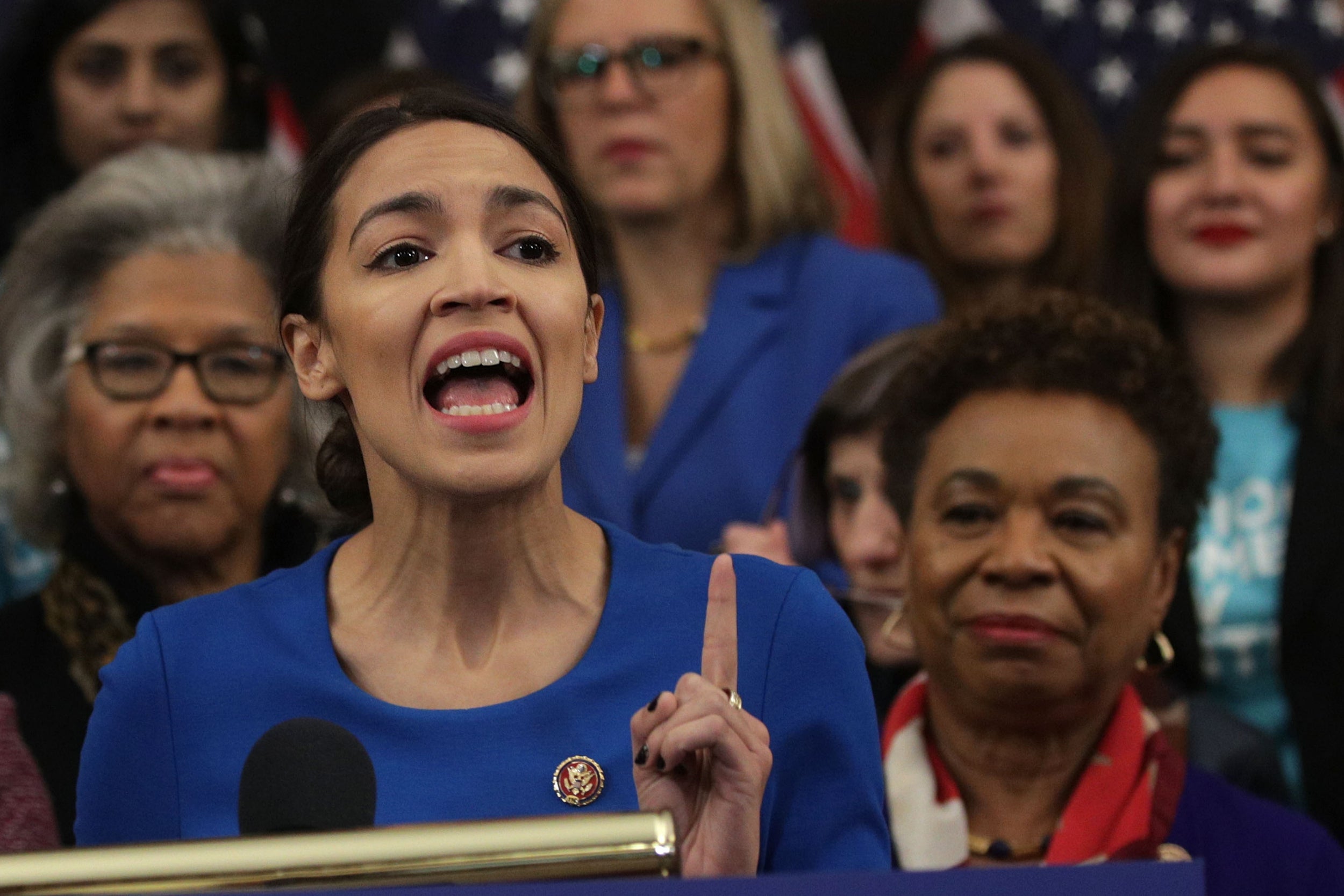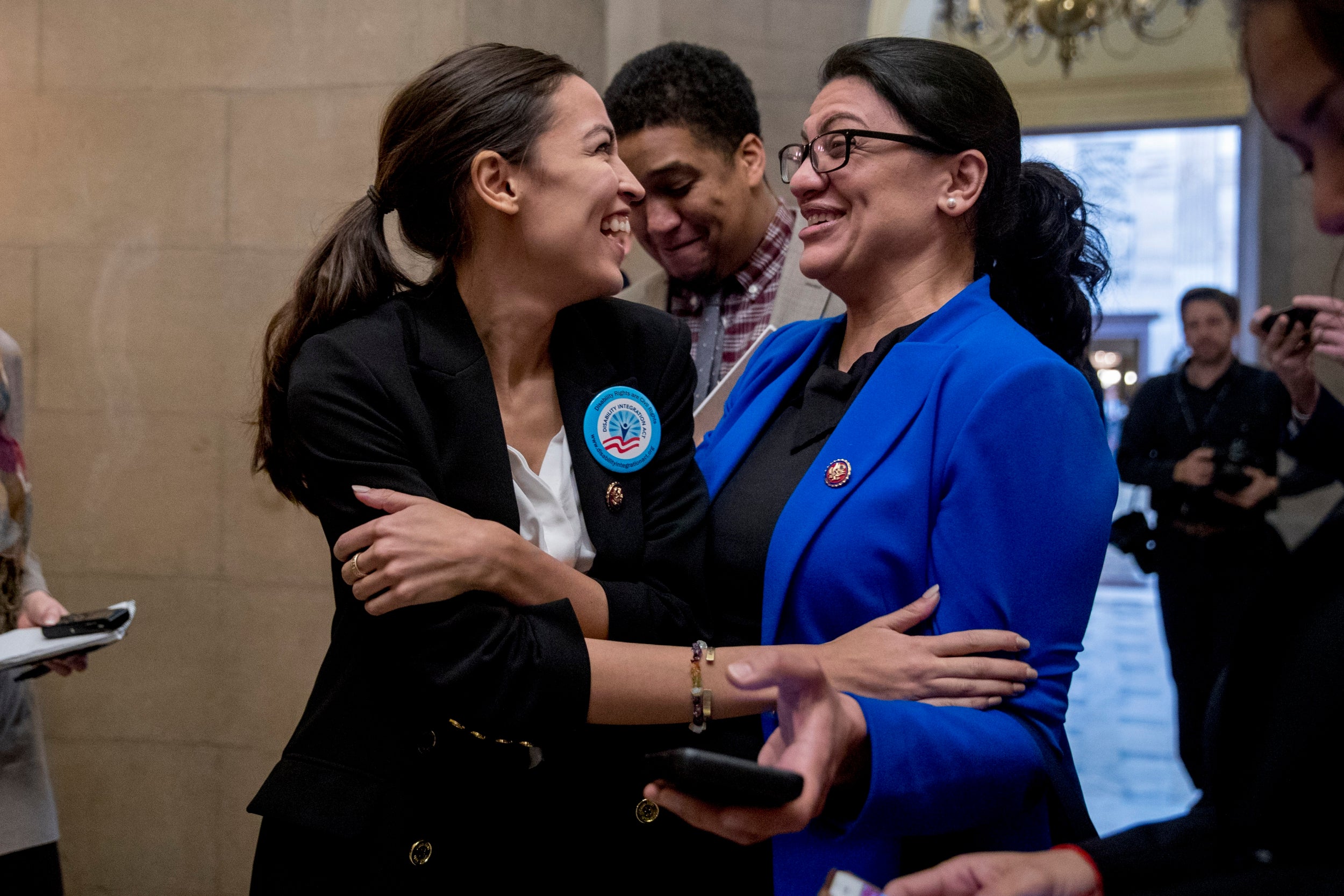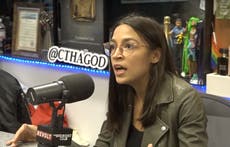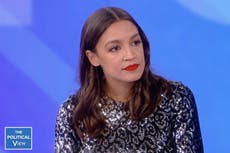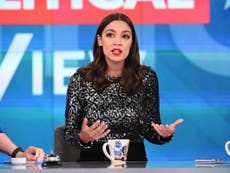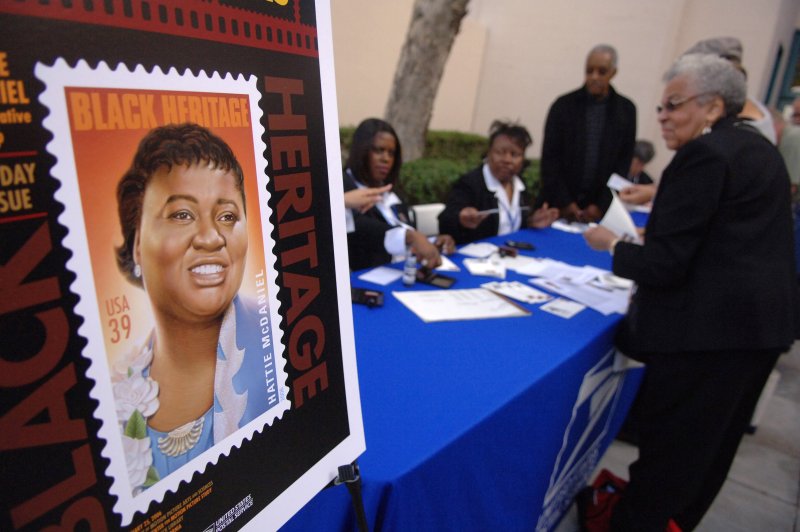Trump barred a top health expert from speaking freely about the coronavirus. It's one of many ways the administration has muzzled scientists.
US president Donald Trump looks on as Director of the
National Institute of Allergy and Infectious Diseases at the
National Institutes of Health Anthony Fauci speaks during
a news conference on the COVID-19 outbreak at the
White House on February 26, 2020.
Andrew Caballero-Reynolds/AFP via Getty
The Trump administration reportedly barred Anthony Fauci, one of the US' top experts on infectious disease, from speaking publicly about the coronavirus without approval.
Fauci has tackled the AIDS and Ebola epidemics. He's been director of the US National Institute of Allergy and Infectious Diseases since 1984.
Some of Fauci's statements about the coronavirus have been at odds with claims from President Trump, who has said the illness will disappear.
It's not first time the Trump administration has muzzled scientific experts.
Anthony Fauci has been the director of the US' National Institute of Allergy and Infectious Diseases (NIAID) for 36 years. He guided the US through the AIDS and Ebola epidemics, and is now helping to lead the response to the new coronavirus outbreak.
But the Trump administration has reportedly barred him from speaking about the virus without clearance from the White House, according to The New York Times.
The coronavirus has killed nearly 3,000 people and infected 83,800. It has spread from China to more than 55 other countries.
Although Trump said the US is "rapidly developing a vaccine" for the coronavirus and "will essentially have a flu shot for this in a fairly quick manner," Fauci has estimated that we're between a year and a year-and-a-half away from a vaccine. Trump also expressed optimism that COVID-19 — the disease the virus causes — will disappear, but Fauci has suggested the world is on the brink of a pandemic.
In an apparent bid to exert more control over the messaging around this public-health crisis, The Times reported, the administration instructed Fauci "not to say anything else without clearance." A NIAID spokesperson told Business Insider that "this is not true," however.
Still, the Trump administration has a history of muzzling scientific experts. In the last four years, the White House has prevented meteorologists from discussing hurricane forecasts, Health and Homeland Security staff from commenting on gun violence after mass shootings, and US Geological Survey scientists from mentioning climate change.
Here are some examples of the Trump administration's attacks on science, which have often come in the midst of public crises.
As Hurricane Dorian barreled through the Caribbean on September 1, Trump incorrectly tweeted that the storm would hit Alabama. He later displayed a forecast map that had been doctored with a sharpie to include Alabama — information at odds with National Weather Service's prediction.

President Trump holds up a doctored graphic of Hurricane
Dorian's trajectory, September 4, 2019. White House/Twitter
After National Weather Service forecasters took to social media to correct Trump's mistake, the National Oceanic and Atmospheric Administration (NOAA) issued a memo that disavowed the statements disputing the president's claims.
NOAA then released a statement supporting Trump's claims and refuting its own previous forecasts.
That dramatic reversal, according to The New York Times, came about because White House Chief of Staff Mick Mulvaney told Secretary of Commerce Wilbur Ross to ensure that NWS forecasters didn't contradict the president. Ross threatened to fire top NOAA officials if they didn't tamp down on the forecasters' comments.
Following back-to-back mass shootings in El Paso, Texas and Dayton, Ohio, last year, staff at the Department of Health and Human Services were told to get approval before posting anything on social media related to mental health, violence, or mass shootings.

A woman leans over to write a message on a cross at a
makeshift memorial at the scene of a mass shooting at a
shopping complex in El Paso, Texas, August 6, 2019.
John Locher/Associated Press
Trump linked gun violence to mental illness at the time: "Mental illness and hatred pulls the trigger, not the gun," he said.
But research suggests Trump's comment was bogus. Mental-health issues are not predictive of violent outbursts: Although as many as one in five people in the US experience mental illness every year, people with serious mental-health problems account for just 3% of all violent crime.
In November, the Environmental Protection Agency proposed a rule that would require scientists to make their data public to the agency before their findings could be used in EPA policy decisions about public health.

Donald Trump delivers remarks with EPA acting Administrator
Andrew Wheeler (L) at the White House State Leadership
Day Conference on October 23, 2018. Win McNamee/Getty
That would cripple clean air and water regulations, CNN reported, because those public-health policies are rooted in studies that utilize confidential health records or disclosures.
According to The New York Times, the proposal would also retroactively halt the further use of research already referenced by the EPA if scientists didn't make that data public (including confidential medical records).
When a Department of Agriculture scientist's 2018 research revealed that rising carbon emissions will make rice less nutritious, the Trump administration questioned the findings then tried to minimize media coverage.

A farmer visits her rice paddy field in Hanoi, Vietnam.
Reuters/Nguyen Huy Kham
The USDA not send out a press release about the research, and they also declined to give the researcher, Lewis Ziska, permission to do media interviews.
Ziska had worked at the USDA for two decades, but he left his post in 2019, according to Politico.
In March 2019, US Geological Survey research found that sea-level rise and flooding will impact 600,000 Californians and cause $150 billion in property damages by 2100. But the accompanying press release downplayed that information.

A man and his son watch as waves crash off sea cliffs
along the southeast shore of Oahu as Hurricane Lane
approaches Honolulu on August 24, 2018. Caleb Jones/AP
The press release accompanying the study didn't include the expected costs of rising sea levels at all.
"An earlier draft of the news release, written by researchers, was sanitized by Trump administration officials, who removed references to the dire effects of climate change after delaying its release for several months, according to three federal officials who saw it," E&E News reporter Scott Waldman, who broke the news, wrote.
One anonymous federal researcher reportedly told Waldman: "It's been made clear to us that we're not supposed to use climate change in press releases anymore. They will not be authorized."
"Climate change" isn't the only phrase the Trump administration has censored. Two years ago, the administration prohibited the Centers for Disease Control and Prevention from using the words "vulnerable," "entitlement," "diversity," "transgender," "fetus," "evidence-based," and "science-based" in 2018 budget documents.
 The main Centers for Disease Control and Prevention (CDC) campus in Atlanta, Georgia. Tami Chappell/Reuters
The main Centers for Disease Control and Prevention (CDC) campus in Atlanta, Georgia. Tami Chappell/Reuters
According to the Washington Post, CDC staff was told to use language like "science in consideration with community standards and wishes," in lieu of "science-based."
In 2017, Department of Interior officials deleted sections of a letter detailing how President Trump's proposed border wall with Mexico would harm wildlife.

Government contractors erect a section of Pentagon-funded border wall along the Colorado River, September 10, 2019 in Yuma, Arizona. Matt York/AP
The letter came from scientists at the Fish and Wildlife Service and was sent to the Customs and Border Protection.
According to the Union of Concerned Scientists, the letter brought up scientifically valid concerns about the potential impact of the border wall on endangered species that live along the border.
The National Park Service also muzzled employees last year.

Amidst a US government shutdown in 2019, National Park
Service locations remained closed.
Caballero-Reynolds/AFP/Getty
The acting deputy director of the Park Service, David Vela, told workers last summer that they had to check in with their supervisors in the Capitol before commenting to other federal agencies on issues related to gas and oil drilling.
Critics of the memo said it was an effort to prevent park staff from voicing opposition to development and drilling on federal public lands.
Anthony Fauci, who the Trump administration barred from speaking freely, is a public-health hero. The disease expert guided the US through AIDS, Zika, and Ebola.
Anthony Fauci, director of the National Institute of Allergy and Infectious
Diseases, speaking at a press conference about the coronavirus,
February 26, 2020. Michael Brochstein / Echoes Wire/Barcroft Media
via Getty Images
The Trump administration reportedly barred Anthony Fauci, a top US experts on infectious disease, from speaking publicly about the coronavirus outbreak without approval.
Some of Fauci's statements about the virus have been at odds with claims from President Trump.
US public-health experts are angry, and one said his silence "is a threat to public health and safety."
Fauci has been director of the National Institute of Allergy and Infectious Diseases since 1984. He's tackled the AIDS, Zika, and Ebola epidemics
Anthony Fauci has guided the US through the AIDS, Zika, and Ebola epidemics.
He's been the director of the US' National Institute of Allergy and Infectious Diseases (NIAID) since 1984, advising six presidents. George W. Bush awarded him the Presidential Medal of Freedom in 2008.
Fauci is now helping to lead the response to the new coronavirus outbreak.
But the Trump administration has reportedly told Fauci and other top health officials "not to say anything else without clearance" from the White House, according to The New York Times. A NIAID spokesperson told Business Insider that "this is not true," however.
Fauci's comments about the coronavirus have contradicted Trump's several times. Whereas Trump said the US "will essentially have a flu shot for this in a fairly quick manner," Fauci has estimated that we're between a year and a year-and-a-half away from a coronavirus vaccine. Trump also expressed optimism that COVID-19 — the disease the virus causes — will disappear, but Fauci has suggested the world is on the brink of a pandemic.
US health experts were angry about the White House's restrictions on Fauci's speech, the Times reported, given that the world is in the midst of one of the worst public-health crises in years.
"Presidents Reagan, Bush, Clinton, Bush and Obama trusted Tony Fauci to be their top adviser on infectious disease, and the nation's most trusted communicator to the public," Ronald Klain, who led the Obama administration's response to the 2014 Ebola crisis, tweeted on Thursday.
He added, "If Trump is changing that, it is a threat to public health and safety."
Here are some of Fauci's biggest accolades and achievements.
Fauci joined the National Institutes of Health (NIH) as an autoimmune-disease researcher after getting his doctorate from Cornell University.

Anthony Fauci attends the 21st International AIDS conference in Durban, South Africa, on July 19, 2016. Rajesh Jantilal/AFP via Getty
He's spent more than half his life working in the public-health sector.
Fauci took over the top position at NIAID in 1984. The institute has an annual budget of nearly $6 billion and manages the prevention, diagnosis, and treatment of infectious diseases like HIV/AIDS, measles, and tuberculosis in the US.

Anthony Fauci testifies about the US measles outbreak before a House Energy and Commerce Oversight and Investigations Subcommittee on Capitol Hill in Washington, DC, February 3, 2015. Jim Bourg/Reuters
NIAID also supports research on autoimmune disorders like asthma and allergies and handles oversight of emerging diseases such as Ebola and Zika.
When Fauci took over NIAID, the world was in the throes of the HIV/AIDS crisis. He was one of the leading architects of the President's Emergency Plan for AIDS Relief, a program credited with saving millions of lives.

Barack Obama tours the Vaccine Research Center at the National Institutes of Health in Bethesda, Maryland with Anthony Fauci (middle), December 2, 2014. Larry Downing/Reuters
Fauci's research has been pivotal in understanding how HIV destroys the body's immune system. He played a critical role in developing treatments that enable HIV-positive people to live long and active lives.
George W. Bush awarded Fauci the Presidential Medal of Freedom — the highest honor given to a civilian — in 2008 because of his role in creating the PEPFAR program.

George W. Bush presents the Presidential Medal of Freedom on June 19, 2008 to Anthony Fauci during ceremonies at the White House in Washington, DC. Karen Bleier/Getty
Fauci has also won the Presidential National Medal of Science and been given 45 honorary doctoral degrees from universities in the US and abroad.
He won the Robert Koch Gold Medallion, an international award for "accumulated excellence in biomedical research" in 2013.
President George H. W. Bush asked Fauci to be head of the NIH in 1989, but Fauci refused, saying that his work at NIAID was more important.
 Anthony Fauci at the National Institutes of Health in Bethesda, Maryland, November 22, 2016. Gershon Peaks/RVN/Reuters
Anthony Fauci at the National Institutes of Health in Bethesda, Maryland, November 22, 2016. Gershon Peaks/RVN/Reuters
As a researcher, Fauci has been the author, co-author, or editor of more than 1,300 scientific publications.
Fauci was the 41st-most cited researcher of all time based on Google Scholar citations, according to a 2019 analysis.

Anthony Fauci delivers remarks at the Economic Club of Washington, January 29, 2016. Jonathan Ernst/REUTERS
He ranks eighth out of more than 2.2 million immunology authors in terms of his citation counts in the last 40 years.
Fauci also worked on the response to the anthrax threat in the US following the September 11 attacks.

Anthony Fauci during a news conference at the Department of Health and Human Services in Washington, DC, January 28, 2020. Amanda Voisard/Reuters
After 9/11, the US prepared for a potential biological attack as deadly anthrax packages flooded the offices of government workers and members of the media. Fauci kickstarted a NIAID research program to work on treatments and vaccines for infectious agents that could be used by bioterrorists.
His expertise and experience were also critical during the Ebola outbreak between 2014 and 2016, and the Zika outbreak that started soon thereafter.
 Anthony Fauci, right, testifies before the Senate Appropriations Committee on the US government response to Ebola on November 12, 2014. Gary Cameron/Reuters
Anthony Fauci, right, testifies before the Senate Appropriations Committee on the US government response to Ebola on November 12, 2014. Gary Cameron/Reuters
Fauci assisted with the creation of public policy around Ebola, and he worked to reassure Americans of their safety.
Ned Price, a top National Security Council aide under the Obama administration, tweeted Thursday: "During the Ebola outbreak, we couldn't get enough of NIH's Dr. Fauci because no one knew more or could deliver it with more authority or experience. Muzzling Dr. Fauci is an effort to muzzle fact and science when it's needed most."
Fauci told Smithsonian Magazine in 2016 that we've learned the same lesson during every infectious-disease outbreak: "You've got to be prepared. You have to have good surveillance. You have to have good diagnostics."

\Anthony Fauci speaks to the media about the Zika virus in Washington, August 11, 2016. Joshua Roberts/REUTERS
He added: "You have to be able to move quickly. And we've shown that when you do that, you get good results."
Fauci has approached the new coronavirus outbreak in the same way.
Fauci's work has saved the lives of millions of men, women, and children across the world, according to the American Academy of Achievement.

Anthony Fauci speaks about the public-health response to the outbreak of the coronavirus during a news conference at the Department of Health and Human Services in Washington DC, January 28, 2020. Amanda Voisard/Reuters
The Academy cited Fauci's legacy of leadership in public health and research into HIV/AIDS therapies
